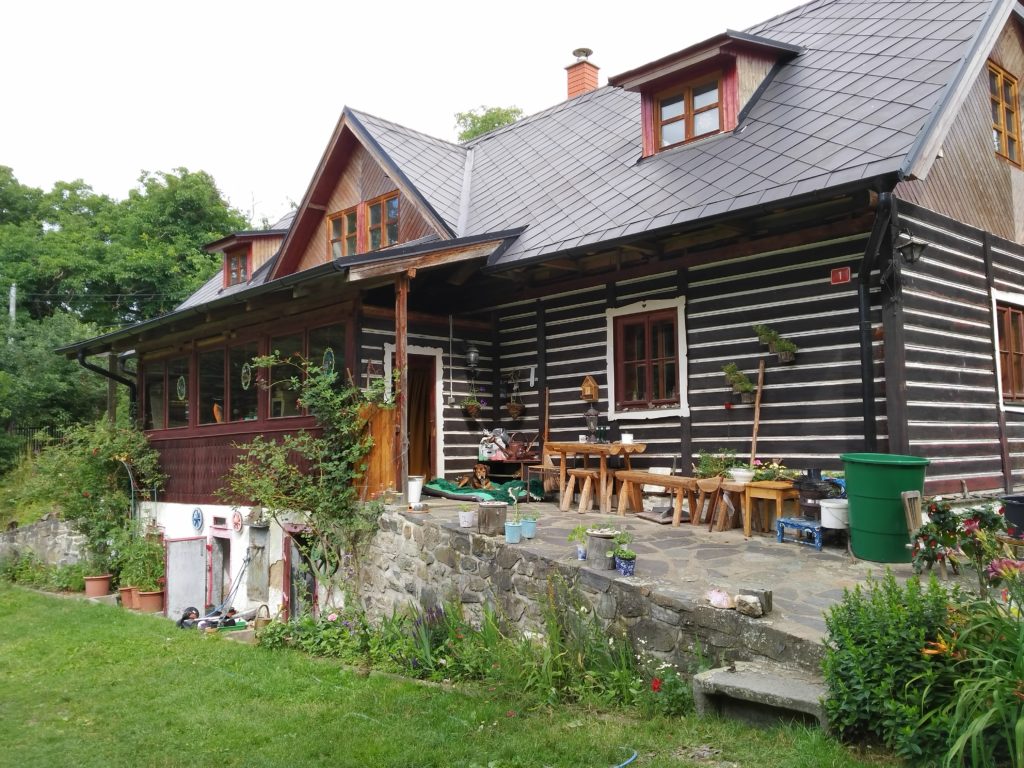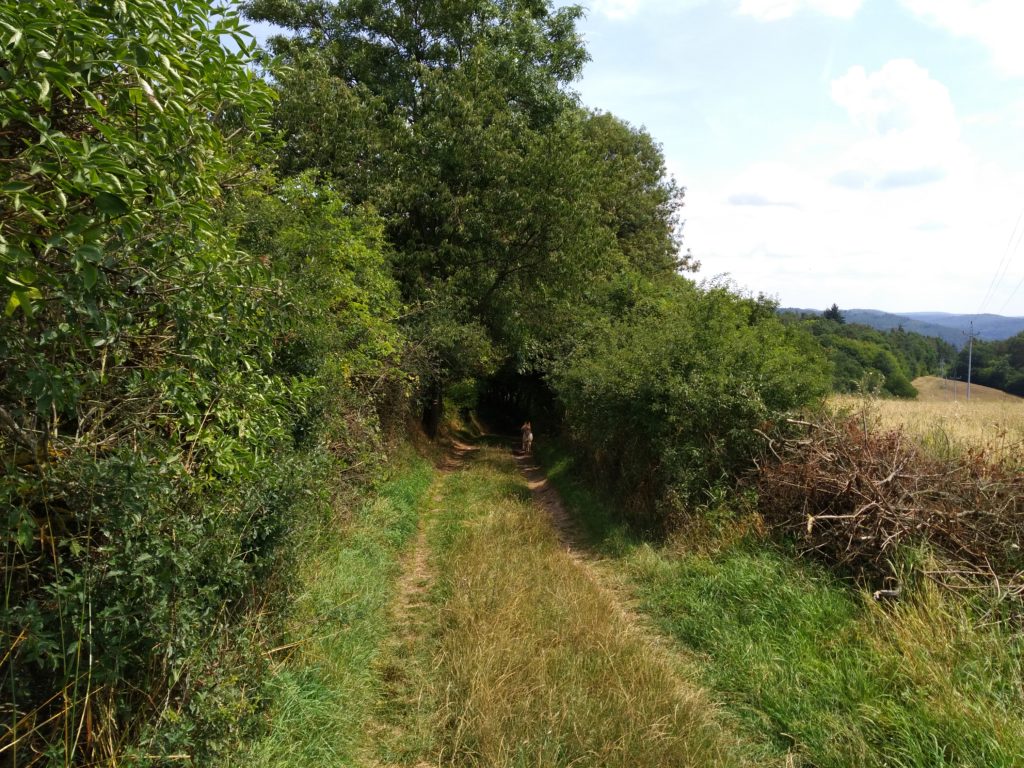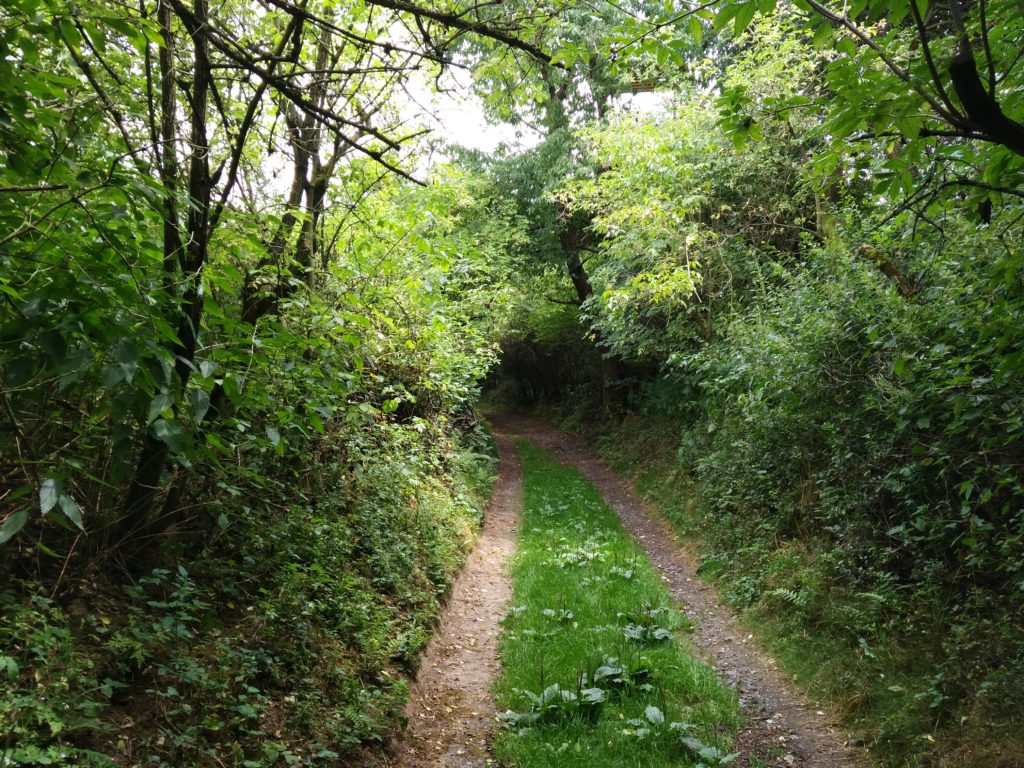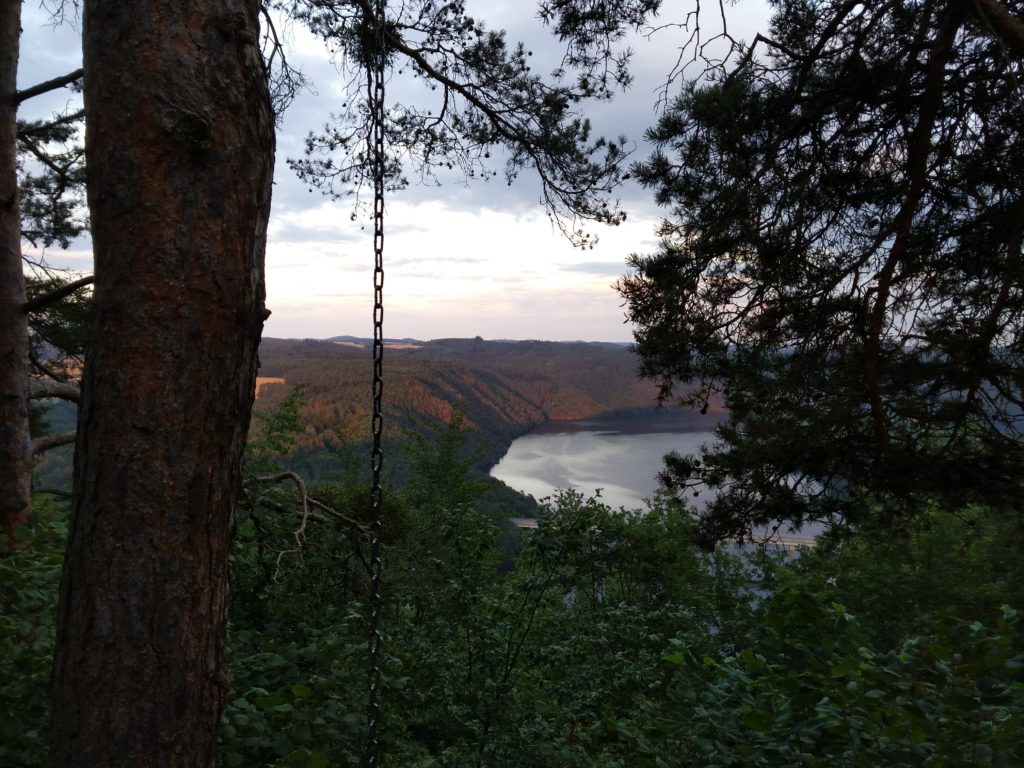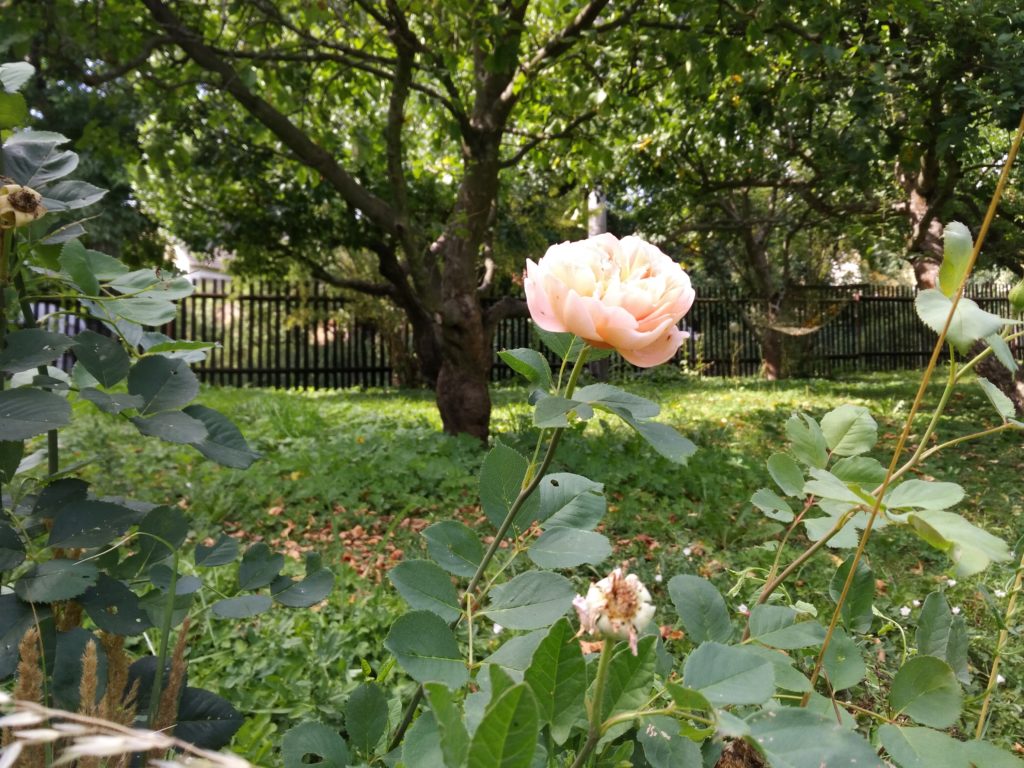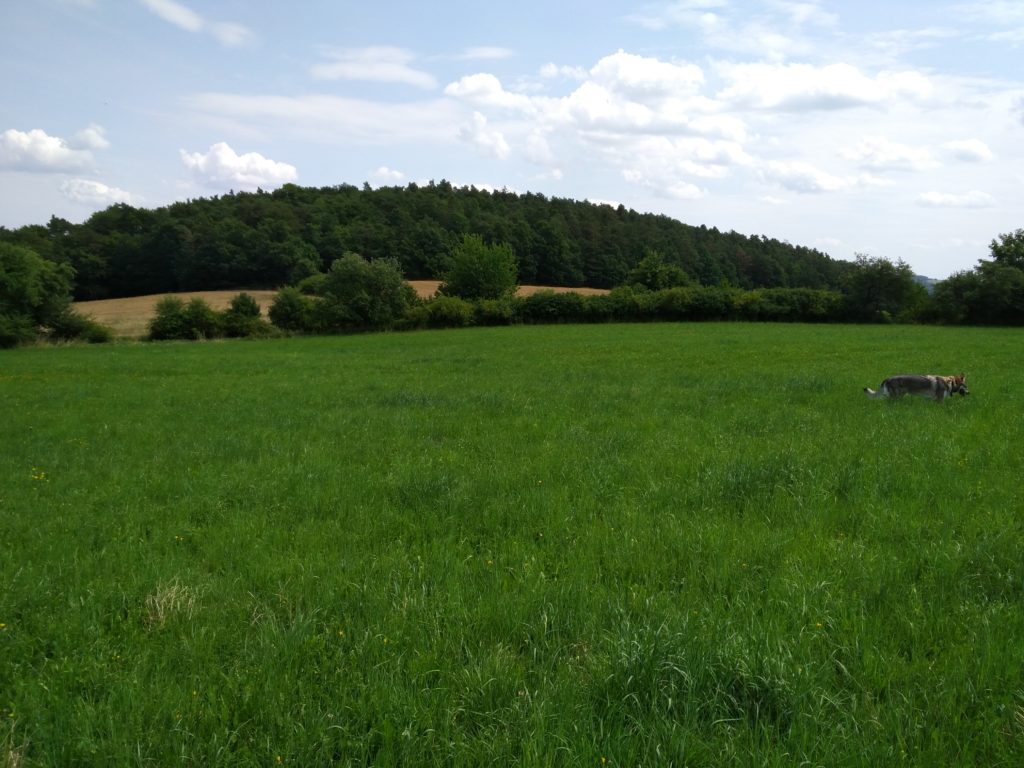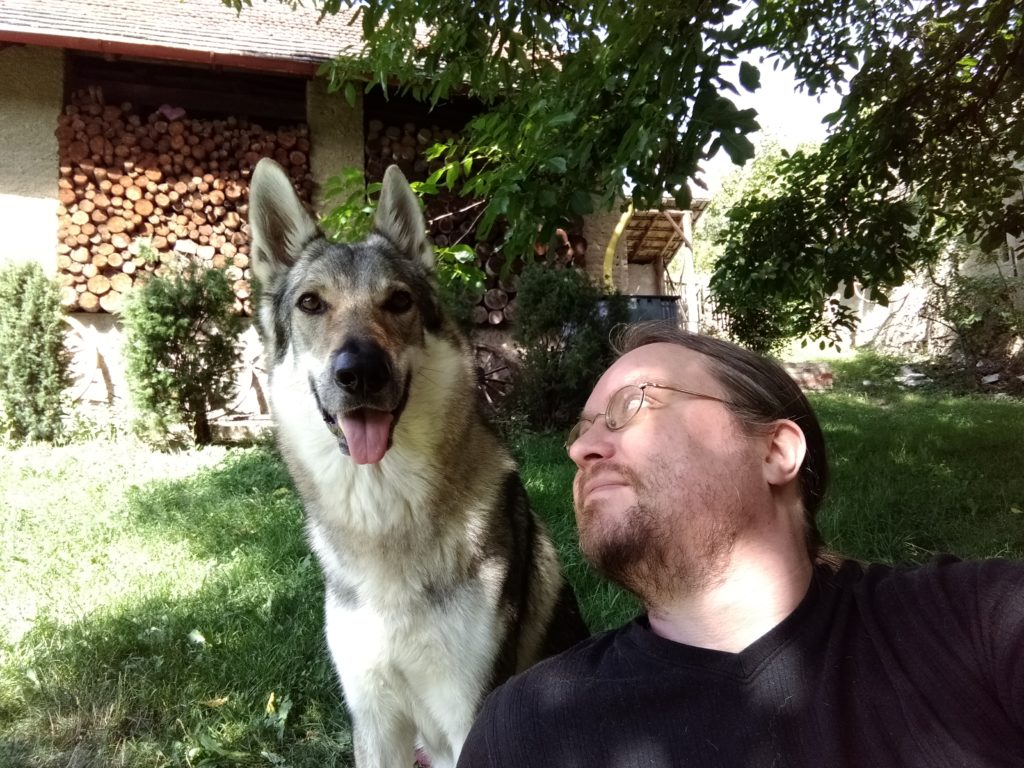Two years ago, I came to visit friends in Krenicna, Central Bohemia, and to look after the gardens and the dogs while they were away. I wrote the first 20,000 words of Reclaiming Civilization here. I returned again this summer, again to take care of the gardens and the dogs while the family was away. Here are some new photos, and a few thoughts.
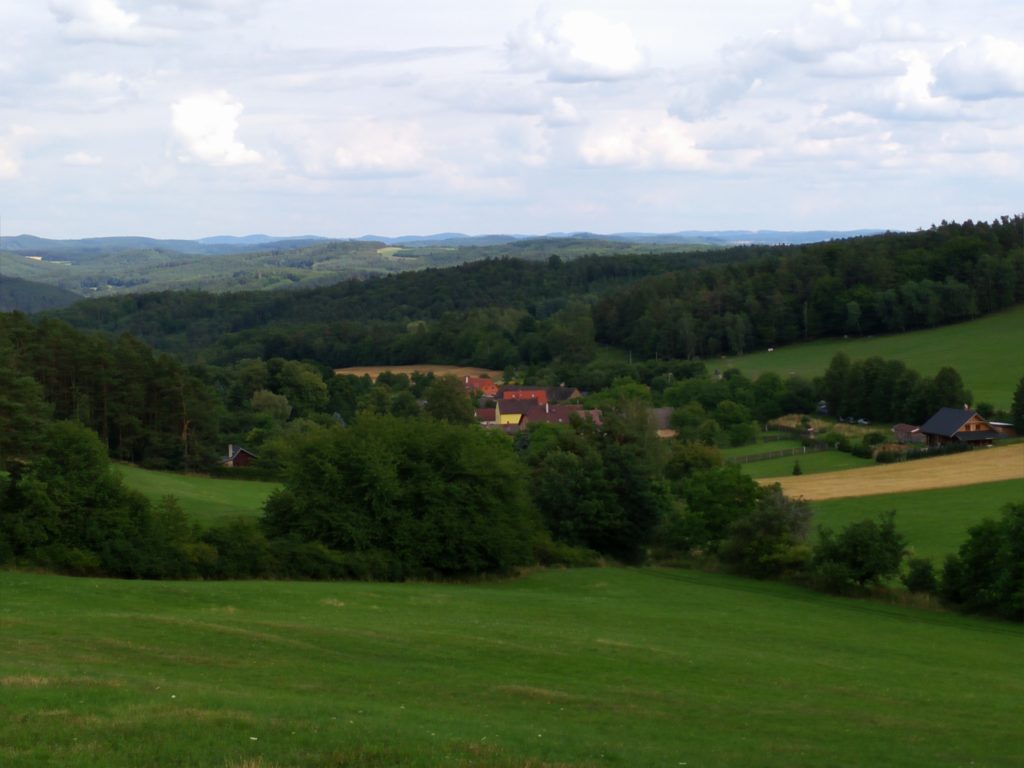
View of Krenicna, Czech Republic.
I count twenty-seven days of nearly complete solitude, from the day the Reidinger family left for their holiday in America, to the day they returned. That’s a personal record for me. But I was not totally alone. I knew some of the neighbours, having met them two years ago: and I’m especially grateful to Tomas and Ivanna for checking in on me every so often, to make sure I had enough food and that I wasn’t injured or sick or going insane.
But for most days, I had a routine that involved no other human beings at all. In the morning, I feed the dogs and the cat, then take all the critters outside for the morning potty. Then I see to my own breakfast, usually jam on toast and a pot of tea. The dogs got their first walk in the fields in the mid morning. One of them, Kringle, is very old and sickly, and I was warned to expect he might die while I was looking after him. The other, Helli, is a four year old Czech wolfdog and full of running and bouncing. So, as I walk down the Cim road to the field that they like, I’m pulled ahead by Helli and held back by Kringle. In effect, I wasn’t walking the dogs: they were walking me. Then we’d get to the field. I would let Helli off-leash– she is comfortable enough with me to stay near me most of the time, and to come to my side when I call her. (A consequence of this is that most of the Czech words I know are dog commands. Pojd’ sem! Pozor!) We would walk a loop around a grove of trees in the middle of the field, then take a side path home through a stand of pines.
After that part of the day, I would lose track of what clock-time it was. I would measure time by the position of the house’s shadow on the yard. And as the retreat grew into its first week, I lost track of what calendar-day it was. Mondays and Julys and thirteens and seventeens mostly disappeared. There were clocks in the house and on the computer, but I had lost the habit of looking at them. And I have to say, I liked living in natural time instead of in clock time. I still got as much work done as was necessary to do, watering the gardens and cleaning up after Kringle, but there was never any hurry, and thus never any stress.
Most afternoons, I spend my time editing two books of mine that will be published later: one a science fiction novel, the other a second edition of my logic textbook. In the late afternoon, I would go for another walk in the hills, this time only with Helli, because she needed the extra exercise, and so did I. We’d go to one of three or four favourite spots of mine, each at least two kilometres from the house by my rough foot-measure, sit there for a while, and return. I liked to imagine that I was a philosopher-hero on an epic quest to find the treasure-knowledge hidden in the places to which I gave my own private names: the overlook at the end of the hollow hedgerow, the research station at the end of the pine cathedral, the hunter’s platform in the great meadow.
We also explored places which I did not visit the first time. For example: see the notch in the tree line, on top of the hill in the distance?
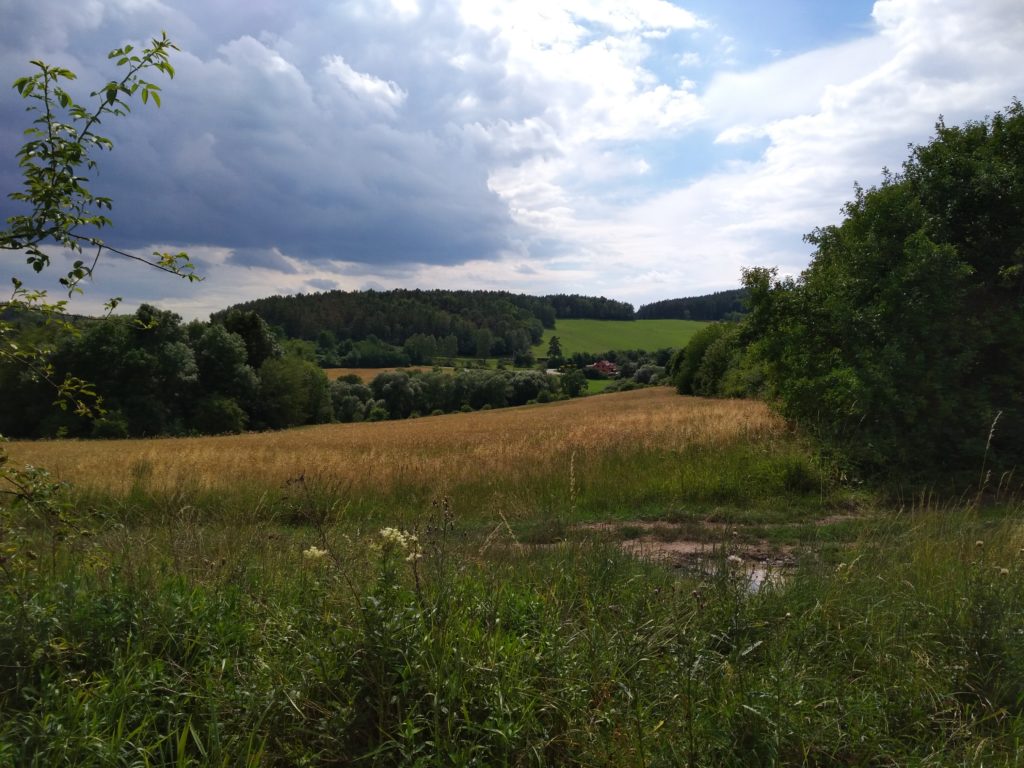
Last visit, I wanted to explore it but didn’t. This year, I found a way to get there without disturbing the cattle or crossing electric fences. Here’s the view from that notch:
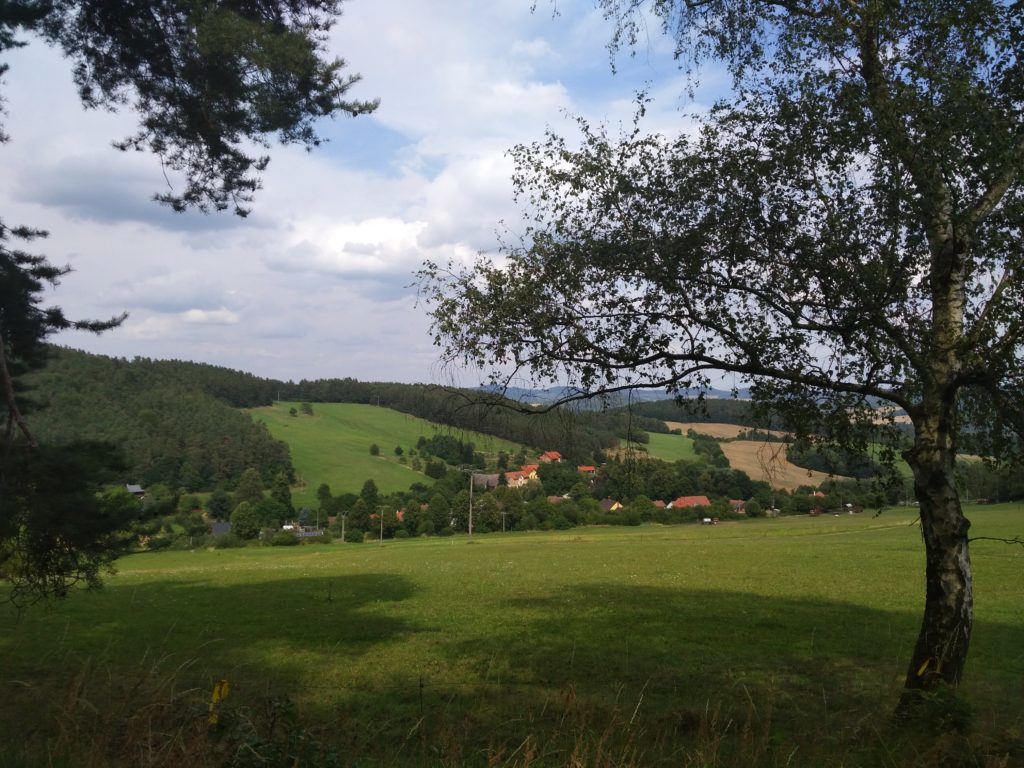
Another day, I followed a path through the woods to Cim, the next nearest town to Krenicna.
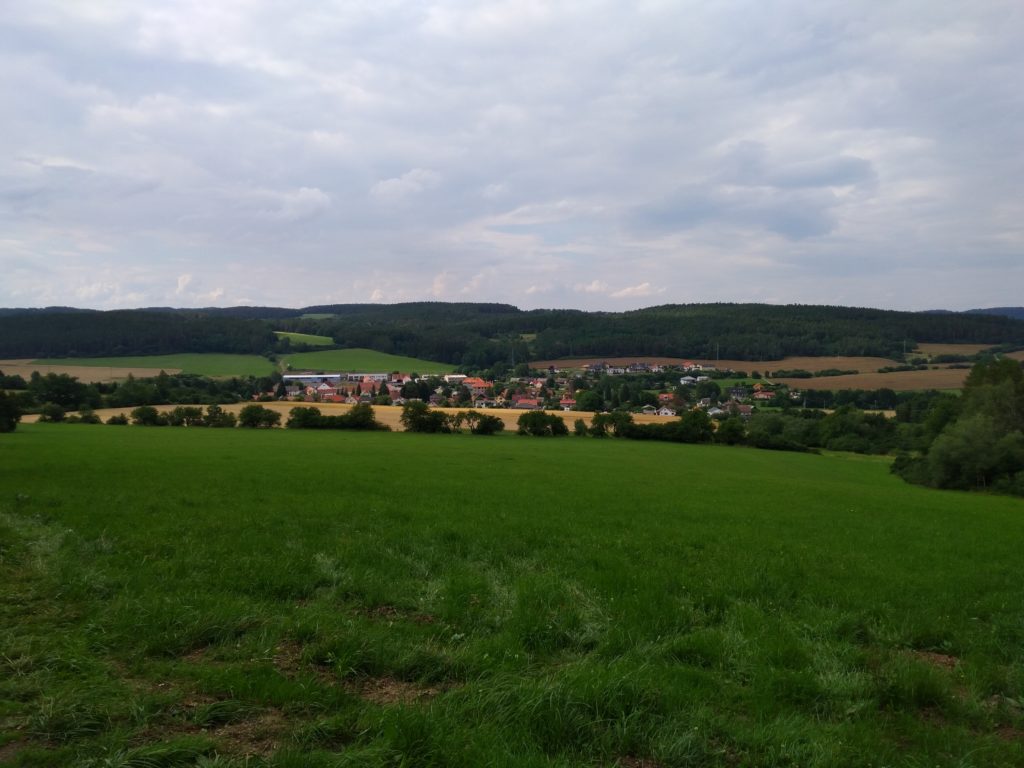
Then at night I made my dinner– sometimes the same dinner as last time, so that there was a five-day stretch when I ate the same chicken and pasta dish– and read a novel or a nonfiction text until I felt like going to bed.
Such was my routine. And I loved it. Most of the time, I felt rested, at home, active in my mind, healthy in my body (if a little bit heavier and less clean-shaven than I’d like to be), and free. And on three or four nights in the first two weeks, I enjoyed a visit from the English-speaking neighbours, where we talked of things like why city people don’t understand country life, or why mushroom-hunting is a Czech national sport, or why shamanism is better than Christianity.
But this routine was occasionally interrupted by the prickly side of solitude which most people call ‘loneliness’. It was during these times that I felt profoundly isolated, as if the nearest neighbours, whose houses were perhaps only thirty meters away, were instead a hundred kilometres distant. I felt cravings for junk food, and television, and social media; I felt sexual fantasies for people who I know wouldn’t have me, such as a past girlfriend who lives in Germany in a village that’s perhaps five or six hours’ drive from here. (I’ve no reason to believe she would want to see me. In those last weeks of the relationship, I was too involved with my own needs, and so I neglected hers. That was unkind of me.) The old bugbear of solitude is the belief, which in my mind comes unbidden like a natural fact of reality, that I am alone because no one wants me around. Because they have concluded their lives are better off without me. I know this isn’t entirely true; most of the time I am alone because I choose to be. Nevertheless, the old bugbear is my most regular visitor, and he doesn’t leave until I concentrate my mind on something creative and interesting and difficult, which I can share with others when I emerge to see them.
Thus, on one particular night when the old bugbear seemed especially overbearing, I heard the voice of one of the characters in my half-edited novel, and I wrote down what she said:
“Loneliness is my laboratory. If you want to create or discover anything genuinely new and beautiful, then you have to see and hear and think of things differently than other people. You have to look where it appears that there’s nothing, where no one else will look; you have to go where maybe no one will follow. And if you find something that way, then the chances are people around you won’t understand you anymore. You won’t belong to the same world they do, anymore. But you have to accept that. You have to pass through the night, if you want to reach the morning.”
When the Reidinger family returned, I was delighted. I was living in an inhabited world again. And the following day they took me to Prague, which I had visited last time as well, but this time I wanted to see only one sight: the grave of the scientist Tycho Brahe, discoverer of “Tycho’s Star” (a supernova) and very possibly a secret devotee of the Greek goddess Urania, one of the nine muses. I don’t know that for certain; it is likely that he admired her in the same manner as other Renaissance intellectuals admired Greek and Roman paganism, that is, in the mode of a fantasy that they could contemplate and enjoy when their Sunday obligations to Christianity were fulfilled. But he did name his observatory after Her. And I am an admirer of Urania, too.
If there was any wisdom I drew from this summer, it was only a reaffirmation of some truths I already know and accept: that solitude is good for us; that it is not selfish; that it is far more difficult to distinguish solitude from loneliness than most people acknowledge; and that although solitude is a place everyone should regularly visit, still it is a place where we should not stay for too long.
Or, if you must go there for a long time, bring a couple of dogs.
More photos of my trip can be found on my twitter feed. This one, “Philosopher dog”, turned out to be a favourite.
The book I wrote here two years ago, Reclaiming Civilization, is available now!

